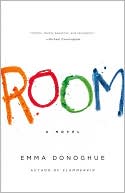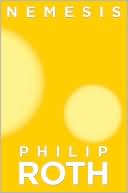The Housekeeper and the Professor
He is a brilliant math Professor with a peculiar problem—ever since a traumatic head injury, he has lived with only eighty minutes of short-term memory. \ She is an astute young Housekeeper—with a ten-year-old son—who is hired to care for the Professor. \ And every morning, as the Professor and the Housekeeper are introduced to each other anew, a strange and beautiful relationship blossoms between them. Though he cannot hold memories for long (his brain is like a tape that begins to...
Search in google:
He is a brilliant math Professor with a peculiar problem—ever since a traumatic head injury, he has lived with only eighty minutes of short-term memory. She is an astute young Housekeeper, with a ten-year-old son, who is hired to care for him. And every morning, as the Professor and the Housekeeper are introduced to each other anew, a strange and beautiful relationship blossoms between them. Though he cannot hold memories for long (his brain is like a tape that begins to erase itself every eighty minutes), the Professor’s mind is still alive with elegant equations from the past. And the numbers, in all of their articulate order, reveal a sheltering and poetic world to both the Housekeeper and her young son. The Professor is capable of discovering connections between the simplest of quantities—like the Housekeeper’s shoe size—and the universe at large, drawing their lives ever closer and more profoundly together, even as his memory slips away. The Housekeeper and the Professor is an enchanting story about what it means to live in the present, and about the curious equations that can create a family.The New York Times - Dennis OverbyeThis is one of those books written in such lucid, unpretentious language that reading it is like looking into a deep pool of clear water. But even in the clearest waters can lurk currents you don't see until you are in them. Dive into Yoko Ogawa's world (she is the author of more than 20 works of fiction and nonfiction) and you find yourself tugged by forces more felt than seen.
Of all the countless things my son and I learned from the Professor, the meaning of the square root was among the most important. No doubt he would have been bothered by my use of the word countless—too sloppy, for he believed that the very origins of the universe could be explained in the exact language of numbers—but I don’t know how else to put it. He taught us about enormous prime numbers with more than a hundred thousand places, and the largest number of all, which was used in mathematical proofs and was in the Guinness Book of Records, and about the idea of something beyond infinity. As interesting as all this was, it could never match the experience of simply spending time with the Professor. I remember when he taught us about the spell cast by placing numbers under this square root sign. It was a rainy evening in early April. My son’s schoolbag lay abandoned on the rug. The light in the Professor's study was dim. Outside the window, the blossoms on the apricot tree were heavy with rain.\ The Professor never really seemed to care whether we figured out the right answer to a problem. He preferred our wild, desperate guesses to silence, and he was even more delighted when those guesses led to new problems that took us beyond the original one. He had a special feeling for what he called the “correct miscalculation,” for he believed that mistakes were often as revealing as the right answers. This gave us confidence even when our best efforts came to nothing.\ "Then what happens if you take the square root of negative one?" he asked.\ "So you'd need to get -1 by multiplying a number by itself?"\ Root asked. He had just learned fractions at school, and it had taken a half-hour lecture from the Professor to convince him that numbers less than zero even existed, so this was quite a leap. We tried picturing the square root of negative one in our heads: v-1. The square root of 100 is 10; the square root of 16 is 4; the square root of 1 is 1. So the square root of -1 is . . .\ He didn’t press us. On the contrary, he fondly studied our expressions as we mulled over the problem.\ "There is no such number," I said at last, sounding rather tentative.\ "Yes, there is," he said, pointing at his chest. "It's in here. It's the most discreet sort of number, so it never comes out where it can be seen. But it's here." We fell silent for a moment, trying to picture the square root of minus one in some distant, unknown place. The only sound was the rain falling outside the window. My son ran his hand over his head, as if to confirm the shape of the square root symbol.\ But the Professor didn't always insist on being the teacher. He had enormous respect for matters about which he had no knowledge, and he was as humble in such cases as the square root of negative one itself. Whenever he needed my help, he would interrupt me in the most polite way. Even the simplest request—that I help him set the timer on the toaster, for example—always began with "I'm terribly sorry to bother you, but . . ." Once I’d set the dial, he would sit peering in as the toast browned. He was as fascinated by the toast as he was by the mathematical proofs we did together, as if the truth of the toaster were no different from that of the Pythagorean theorem.\ ***\ It was March of 1992 when the Akebono Housekeeping Agency first sent me to work for the Professor. At the time, I was the youngest woman registered with the agency, which served a small city on the Inland Sea, although I already had more than ten years of experience. I managed to get along with all sorts of employers, and even when I cleaned for the most difficult clients, the ones no other housekeeper would touch, I never complained. I prided myself on being a true professional.\ In the Professor's case, it only took a glance at his client card to know that he might be trouble. A blue star was stamped on the back of the card each time a housekeeper had to be replaced, and there were already nine stars on the Professor’s card, a record during my years with the agency.\ When I went for my interview, I was greeted by a slender, elegant old woman with dyed brown hair swept up in a bun. She wore a knit dress and walked with a cane.\ "You will be taking care of my brother-in-law," she said. I tried to imagine why she would be responsible for her husband's brother. "None of the others have lasted long," she continued. "Which has been a terrible inconvenience for me and for my brother-in-law. We have to start again every time a new housekeeper comes. . . . The job isn't complicated. You would come Monday through Friday at 11:00 A.M., fix him lunch, clean the house, do the shopping, make dinner, and leave at 7:00 P.M. That's the extent of it."\ There was something hesitant about the way she said the words brother-in-law. Her tone was polite enough, but her left hand nervously fingered her cane. Her eyes avoided mine, but occasionally I caught her casting a wary glance in my direction.\ "The details are in the contract I signed with the agency. I’m simply looking for someone who can help him live a normal life, like anyone else.”\ "Is your brother-in-law here?" I asked. She pointed with the cane to a cottage at the back of the garden behind the house. A red slate roof rose above a neatly pruned hedge of scarlet hawthorn.\ "I must ask you not to come and go between the main house and the cottage. Your job is to care for my brother-in-law, and the cottage has a separate entrance on the north side of the property. I would prefer that you resolve any difficulties without consulting me. That's the one rule I ask you to respect." She gave a little tap with her cane.\ I was used to absurd demands from my employers—that I wear a different color ribbon in my hair every day; that the water for tea be precisely 165 degrees; that I recite a little prayer every evening when Venus rose in the night sky—so the old woman’s request struck me as relatively straightforward.\ "Could I meet your brother-in-law now?" I asked.\ "That won't be necessary." She refused so flatly that I thought I had offended her. "If you met him today, he wouldn’t remember you tomorrow."\ "I'm sorry, I don’t understand."\ "He has difficulties with his memory," she said. "He's not senile; his brain works well, but about seventeen years ago he hit his head in an automobile accident. Since then, he has been unable to remember anything new. His memory stops in 1975. He can remember a theorem he developed thirty years ago, but he has no idea what he ate for dinner last night. In the simplest terms, it’s as if he has a single, eighty-minute videotape inside his head, and when he records anything new, he has to record over the existing memories. His memory lasts precisely eighty minutes—no more and no less." Perhaps because she had repeated this explanation so many times in the past, the old woman ran through it without pause, and with almost no sign of emotion.\ How exactly does a man live with only eighty minutes of memory? I had cared for ailing clients on more than one occasion in the past, but none of that experience would be useful here. I could just picture a tenth blue star on the Professor's card.\ From the main house, the cottage appeared deserted. An old-fashioned garden door was set into the hawthorn hedge, but it was secured by a rusty lock that was covered in bird droppings.\ "Well then, I'll expect you to start on Monday," the old woman said, putting an end to the conversation. And that's how I came to work for the Professor.\ Copyright © 2003 by Yoko Ogawa; English translation copyright 2009 by Stephen Snyder. All rights reserved.
\ Dennis OverbyeThis is one of those books written in such lucid, unpretentious language that reading it is like looking into a deep pool of clear water. But even in the clearest waters can lurk currents you don't see until you are in them. Dive into Yoko Ogawa's world (she is the author of more than 20 works of fiction and nonfiction) and you find yourself tugged by forces more felt than seen.\ —The New York Times\ \ \ \ \ Ron CharlesThis is a delicate, unhurried story about the friendship that develops between a brain-injured mathematician and a woman who comes every day to prepare his meals. None of the characters is ever named. Nothing romantic or even dramatic ever happens. And there is a lot of conversation about math. Can you hear the marketing team in New York starting to cry? And yet The Housekeeper and the Professor is strangely charming, flecked with enough wit and mystery to keep us engaged throughout.\ —The Washington Post\ \ \ Publishers WeeklyOgawa (The Diving Pool) weaves a poignant tale of beauty, heart and sorrow in her exquisite new novel. Narrated by the Housekeeper, the characters are known only as the Professor and Root, the Housekeeper's 10-year-old son, nicknamed by the Professor because the shape of his hair and head remind the Professor of the square root symbol. A brilliant mathematician, the Professor was seriously injured in a car accident and his short-term memory only lasts for 80 minutes. He can remember his theorems and favorite baseball players, but the Housekeeper must reintroduce herself every morning, sometimes several times a day. The Professor, who adores Root, is able to connect with the child through baseball, and the Housekeeper learns how to work with him through the memory lapses until they can come together on common ground, at least for 80 minutes. In this gorgeous tale, Ogawa lifts the window shade to allow readers to observe the characters for a short while, then closes the shade. Snyder-who also translated Pool-brings a delicate and precise hand to the translation. (Feb.)\ Copyright © Reed Business Information, a division of Reed Elsevier Inc. All rights reserved.\ \ \ \ \ Library JournalFirst published in Japanese in 2003, this gem won the prestigious 2004 Yomiuri Prize and in 2006 was adapted for film (The Professor's Beloved Equation). The story evolves around a young housekeeper and her ten-year-old son, who have an esoteric link to a retired university professor through "amicable numbers." Ogawa (The Diving Pool) deliberately avoids any hint of romance between the two adult protagonists. Instead, she delves into the educational process between the housekeeper, a high school dropout, and the professor, a mathematical genius. With a prose style justly acclaimed as gentle yet penetrating, Ogawa gives mathematical theories from Eratosthenes to Einstein a titanic wink; under her pen, they no longer are solely a topic of conversation among academics but a tool that facilitates conflict resolution, communication between commoner and intellectual, and appreciation for the nobility and individuality of everyday objects; they also help us establish our worth in a chaotic world. This novel evokes the joy of learning, and, with its somewhat eccentric yet lovable protagonists, is a pleasure to read. Highly recommended for both public and academic libraries.\ —Victor Or\ \ \ \ \ \ Kirkus ReviewsFrom Japanese author Ogawa (The Diving Pool, 2008), the story of a struggling single mother who takes a job looking after an elderly mathematician with an unusual disability. When the Akebono Housekeeping Agency dispatches the unnamed heroine to the shabby cottage occupied by the titular academic, there is little reason to think she would last any longer than the previous nine women who briefly worked there. He's clearly not the average client. Seventeen years earlier the professor was in a devastating car accident that left him brain damaged, only able to remember 80 minutes at a time. He gets through the day solving math problems, and attaches notes to his clothes to remember what he needs to do. His memories prior to the accident, however, remain crystal clear, and he survives off the generosity of his widowed sister-in-law, on whose property he lives. Initially he's not much of a talker, but the sweet, almost childlike housekeeper takes a liking to the vulnerable old man, even as she has to reintroduce herself to him every day. He teaches her about the elegance and order of numbers-his passion-while she dotes on him like a daughter. Through his lessons she sees the unexpected poetry in math and sets about solving some problems of her own. She also introduces him to her ten-year-old son, who he nicknames "Root" because the flat top of his head reminds him of the square-root sign. The professor instantly bonds with the fatherless boy, so she and Root spend more and more time at the professor's home. The trio begins to resemble a family, with an unspoken understanding of each other that transcends language and convention. Trouble calls, though, when the sister-in-law, who has her owncomplicated history with the professor, misinterprets the housekeeper's kindness as something more devious. Ogawa's disarming exploration of an eccentric relationship reads like a fable, one that deftly balances whimsy with heartache. Simple story, well told.\ \ \ \ \ From the Publisher"Ogawa weaves a poignant tale of beauty, heart and sorrow in her exquisite new novel." —-Publishers Weekly Starred Review\ \








